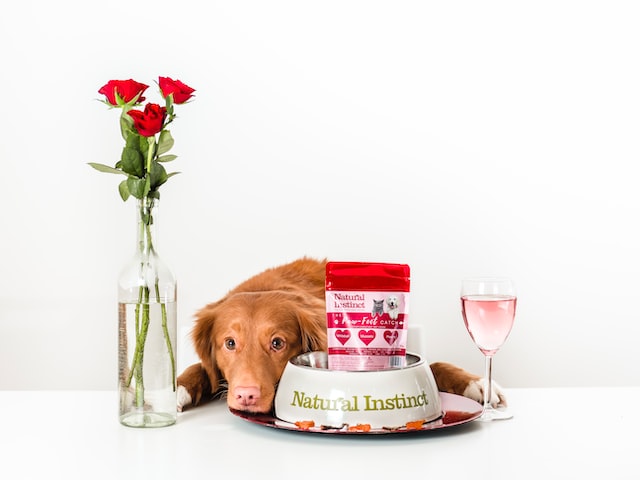As a responsible dog owner, it’s important to ensure that your furry friend receives a well-balanced and nutritious diet. One popular trend in dog nutrition is feeding organic food. But with so many options available, it can be challenging to determine which organic food is best for your puppy. In this article, we’ll explore two ways to feed your puppy organically – by making meals from scratch and by purchasing pre-made organic dog food.
1. Making meals from scratch with organic ingredients

Making meals for your puppy from scratch with organic ingredients is an excellent way to ensure that your puppy gets the best nutrition possible. When you make meals from scratch, you have complete control over the ingredients, portion sizes, and cooking methods. Here are some essential things to keep in mind when making meals for your puppy:
- Choose high-quality, organic ingredients: Look for organic meats, fruits, and vegetables that are free from harmful chemicals and pesticides. Avoid foods that are high in salt, sugar, and preservatives.
- Follow a balanced diet: Dogs need a balanced diet that includes protein, carbohydrates, healthy fats, vitamins, and minerals. Talk to your veterinarian to determine your puppy’s nutritional requirements and develop a meal plan that meets those needs.
- Cook the food appropriately: Cook the food thoroughly to avoid any potential health hazards, such as salmonella or E.coli. Avoid feeding your puppy raw food unless you’ve consulted with your veterinarian.
2. Buying pre-made organic dog food

If you don’t have the time or resources to make meals for your puppy from scratch, you can opt to purchase pre-made organic dog food. Many pet food companies offer a wide range of organic dog food options that cater to different dietary needs and preferences. When choosing pre-made organic dog food, here are some key things to keep in mind:
- Read the labels: Look for organic dog food that contains high-quality, organic ingredients. Avoid foods that contain artificial flavors, colors, and preservatives.
- Choose the right type of food: Select a type of dog food that meets your puppy’s dietary needs, such as puppy food for growing pups or senior food for older dogs.
- Watch portion sizes: Overfeeding your puppy can lead to obesity and other health issues. Follow the feeding guidelines on the packaging and adjust the portion sizes as necessary based on your puppy’s age, weight, and activity level.
Conclusion
Feeding your puppy organic food can provide numerous benefits, including improved digestion, increased energy levels, and a healthier coat. When deciding on the best organic food for your puppy, consider your lifestyle, budget, and your puppy’s specific nutritional needs. Whether you choose to make meals from scratch or purchase pre-made organic dog food, be sure to consult with your veterinarian to ensure that your puppy is receiving the best possible nutrition.











